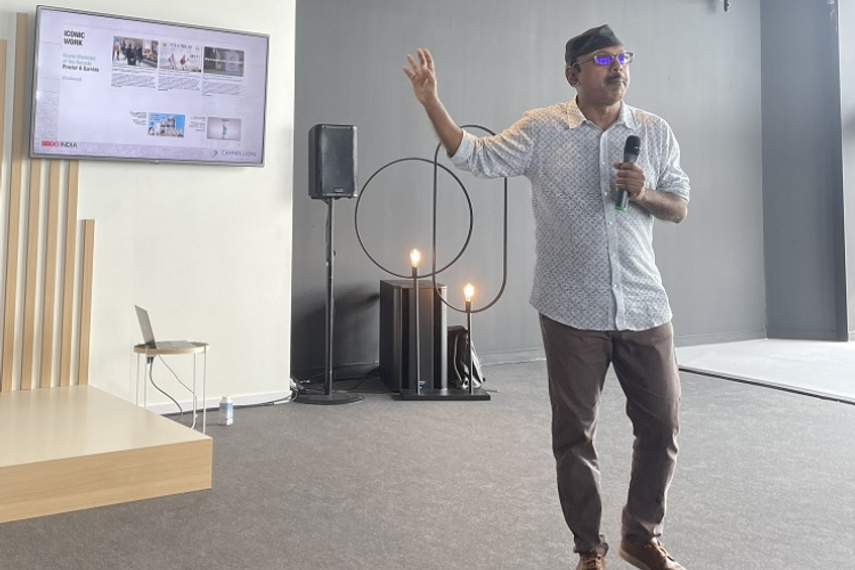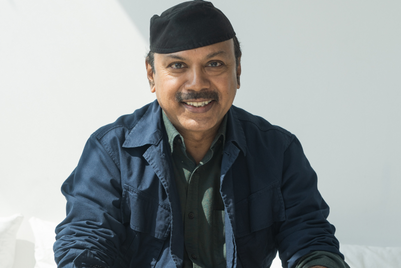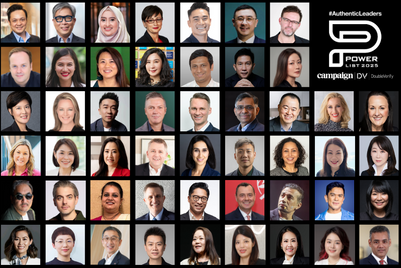
On the final day of the Cannes Lions International Festival of Creativity, Josy Paul, chairperson and chief creative officer, BBDO India, explained how creativity could be seen as the return gift of empathy.
He started his talk by stating life is a series of epiphanies and mentioned that those moments make the advertising industry interesting.
“You see something and realise, you’ve not seen it that way. I often think of the song – I was blind but now I see. All these moments of seeing again allow me to find the next idea. I always believe that creativity is the return gift of empathy. When you have deep connections with humans, it gives you something. You’re taking that gift from the person applying your lens and taking it back to them,” he said.
He compared the job of a creative in the advertising industry to that of a DJ. “We are just giving back what we are hearing differently. It’s not about big data, but about emotional data,” he added.
It’s not about consumer insights – it’s about human confessions
Paul stated that campaigns are born not from consumer insights, but from human confessions. He cited an example of a campaign for eBay India.
“We were working with eBay. The brand team said they were losing their sense of purpose. We were wondering how we could find a purpose for an e-commerce platform. We broke our cynicism within the agency and got together to discuss why we buy things. As the space got safer, one of the women in the room said she bought things to prove to her grandmother that a girl can buy more things than a boy, because she was disappointed at the birth of a female grandchild. The discussion turned into a therapy session and we found so many amazing nuggets that no formal research can get to,” he said.
Paul added that the client was extremely happy with the idea which emerged simply from hearing people and curating something.
It’s not about the brief, but the briefing
Paul stated that it’s not about the brief, but about the discussion the client has with the agency during it.
“The biggest campaign we have created, didn’t happen because a bunch of creative guys wanted to change the world. We went to P&G to talk about sanitary pads. Six women clients were briefing us. We men didn’t know anything about it. So, we didn’t want a brief, we wanted some conversational exchange. I asked them why sanitary pad companies showed blood as blue instead of red.”
Paul stated that it was that question that provoked the client and got them talking.
“They told us about what’s happening in the society. We had no clue. They told us how society looked at it. When nobody had ever spoken about the issue, P&G created a campaign about periods. We were probably talking about things we shouldn’t. We started with something as simple as why women can’t touch pickle jars,” he added.
On the campaign thought, he said, “We just had to find creativity and it came from the briefing session rather than a brief. It was an emotional exchange rather than a transactional one. We didn’t have to sell. The client became the ambassador and got all the approvals cleared. The movement in India is still going on and this was the provocation. It began in a small conference room in P&G, where someone spoke like it wasn’t corporate.”
It’s not selling but buying
Paul realised that it’s not about selling ideas but getting clients to buy them, the difficult way.
His meeting with a client, without the presence of a senior member of his team, ended with Paul threatening to jump out of the window if his idea wasn’t approved.
“I went to present to Philips and there were a lot of people in the marketing room. I was without a senior member from Ogilvy. Everyone thought it was the first session, but at the client’s office, every member of the marketing team was there. They didn’t like the idea of the film and they said no. I rushed to the window and said I’d jump. There was complete fear in the room, the CMO told everyone to leave the room. He came gingerly towards me and said, I love your passion son, step down and give me a chance,” Paul recalled.
When Paul got back to Ogilvy, the chief creative officer was waiting for him at the elevator. He held him by the ear and took him around the room as a punishment, before stating that the client had awarded the business to the agency, but stated that he didn’t want to Paul, ever again.
“That was selling. Then I realised, it’s about buying. We need to create a space for that. What is great about confessions, is that it allows you to look at the world in another way. You get excited to go to work because you’re like an antenna that’s just receiving from other people. All the stories I heard are personal, everyone is the same and feels the same way,” he said before sharing one of Ariel’s #ShareTheLoad films.
“In 2016, when we started this new movement, the calls we received were personal confessions. I’ve been in the business for a while and haven’t got this kind of outpouring. Someone who wanted to resign from P&G decided not to because he worked at the place that created these kinds of campaigns. This campaign broke new grounds. It was personal, yet universal."
He also urged the audience to look at the comments section of the films because that’s where the next idea could come from.
“People pour their hearts out in those comments and they became the idea for our next film. I had no idea it would be this way when I joined the industry. The recent work which won a Bronze Lion in 2022, is in a very different tone. The mood of the world has now changed. There’s a radical impatience among women in India and we wanted to create a new tone for it. Every statement in this film is not ours, we just borrowed it from what people told us,” he explained.
He ended his talk by stating that agencies should mine for emotional data, rather than big data.
“Start with creating a safe space to discuss things. We have something called the white room and something happens when people sit in it. As we share and discover new ideas for brands – it’s a good antidote to the corporate world. You also have got to build trust. And finally, be a deep listener and be vulnerable,” he surmised.


+(900+x+600+px)+(3).png&h=334&w=500&q=100&v=20250320&c=1)
+(900+x+600+px).jpg&h=334&w=500&q=100&v=20250320&c=1)

.jpg&h=334&w=500&q=100&v=20250320&c=1)





.jpg&h=334&w=500&q=100&v=20250320&c=1)







